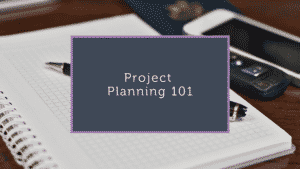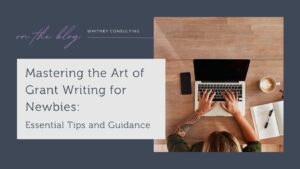There’s a fundamental misunderstanding about what separates successful grant applications from unsuccessful ones. Most people assume that winning funding is just about good writing skills or having a deep understanding of assessment criteria. And whilst having these elements are crucial, to be successful an application must also be have something else… grant readiness.
Let me share what I’ve learned from reviewing hundreds of applications from both sides of the funding divide – grant writer AND grant assessor.
When assessors evaluate grant applications, they’re investigating the promises that are being made in that application. They’re asking detailed questions about feasibility, risk, and deliverability. Questions like: Can this organisation actually deliver this project? Have they thought through the practical challenges? Do their timelines and the budget make sense?
Applications that lack solid project foundations crumble under this scrutiny, regardless of how well they’re written.
This is the type of poor planning that assessors notice immediately:
- Vague budget lines – “Equipment: £50,000” tells them nothing. They want to see detailed costings based on actual quotes, demonstrating you’ve done the groundwork.
- Unrealistic timelines – Claiming you’ll complete environmental approvals in two weeks when the process typically takes three months reveals dangerous naivety about project delivery.
- Missing partnerships – Mentioning community support without formal letters of commitment suggests your partnerships might evaporate under pressure. And doing no stakeholder consultations creates uncertainty as to whether your project needed or even wanted.
These details all paint a picture of project credibility that no amount of persuasive writing can fix.
It should come as no real surprise that the organisations that invest time in thorough project planning before writing their applications consistently have more successful funding outcomes. That isn’t a coincidence. When a project is grant ready, assessors can recognise that you understand what you’re committing to deliver and they trust you with their investment because you’re immediately demonstrating competence through preparation.
Additionally, mapping every project component, securing partnerships, and confirming costings creates pros beyond having a better application. For example, it’ll give your project team more time to refine ideas, secure better partnerships, and negotiate more favourable terms with suppliers.
Spending the time to get grant ready means you are more likely to discover potential problems while there’s still time to address them. Problems such as specialist equipment is discovered to have a six-month lead time, or your preferred contractor is unavailable during your planned timeframe. Projects launched with comprehensive planning consistently meet their milestones and stay within budget. And they often run more smoothly on delivery because you’ve already solved the major challenges before they become crises.
Being grant ready also gives your stakeholders more confidence in your capabilities, meaning they’re more willing to provide formal commitments and financial contributions. You’ll likely find that the demonstration of your solid preparation breeds confidence throughout your entire project ecosystem.
Grant-ready organisations also tend to attract ongoing relationships with funding bodies. When assessors see consistent quality preparation across multiple applications, they often provide informal guidance about future opportunities or suggest alternative funding streams that suit your organisation’s work. Preparation creates opportunities.
Many grants operate on predictable schedules. Government funding often follows annual budget allocations, industry grants align with strategic planning periods, and foundation funding typically corresponds to board meeting schedules. Smart organisations and good grant writers use this predictability to their advantage by identifying relevant funding programs months before applications open.
Pre-planning allows time for comprehensive project development so that when the grants you’ve predicted finally open, your organisation is not scrambling to create a project. Instead, you’re simply applying for funding for work you’ve already committed to delivering.
This strategic approach means you can engage grant writers early, giving them time to:
- review your project plan
- do plenty of research to support the need for your project and how it fits into the funding body’s wider objectives and the government’s strategies
- suggest improvements that strengthen both delivery and application
- craft applications that demonstrate genuine readiness rather than hopeful optimism
Because when preparation meets expertise, good projects become funded projects. So, the question isn’t whether you have time to plan properly: it’s whether you can afford not to.




